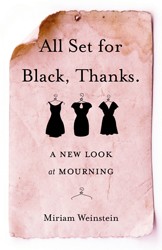One approaches with an immediacy the memoir of Marina Benjamin’s recent publication of her family’s life and last days in Iraq , as this memoir, unlike many other current ones, resonates with the compelling urgency of today’s headlines Benjamin, still in her 30’s is already known for her forays into science [Rocket Dreams, Science and Sensibility, Holography and the Play of Light] Her most recent title, Last Days in Babylon in some ways prepares us for the sadness that she knows accompanies both the loss of a rich and colorful world and the finality of a transition of an entire population .It is indeed difficult to imagine that when Iraq became a modern state in 1932, Baghdad Jews were the largest and most prosperous of all the ethnic groups within a city that boasted new hospitals, colleges of higher learning, medicine, engineering and a modern parliament. Within 40 years almost no Iraqi Jews were to be to be found in the country.
Benjamin’s insightful narrative brings us into the world of the Jews of Baghdad, a world that she had earlier denied herself, feeling estranged from her family’s exotic ways until well past adulthood, not wishing until then to speak their Arabic language or learn the family stories and history that had been available to her. Her research, empirical in that her remaining family is now the most compelling source of detail, is further enhanced by the prodigious reading that her extensive bibliography of eight pages reveals. Perhaps the saddest aspect of the leave-taking from Baghdad to Israel is to be found in the book’s epilogue. It is there at book’s end that we discover how ill-equipped the westernized, then developing Israeli society was to accept and understand the cultural wealth their recent arrivals brought with them. Sadly, the Iraqi Jews along with so many other arriving Arab Jews were perceived as having come from a world that was corrupt, backward, and uneducated, therefore to be seen as a threat to the essential character of the emerging nation. Biblio., epilogue, notes, photographs.





